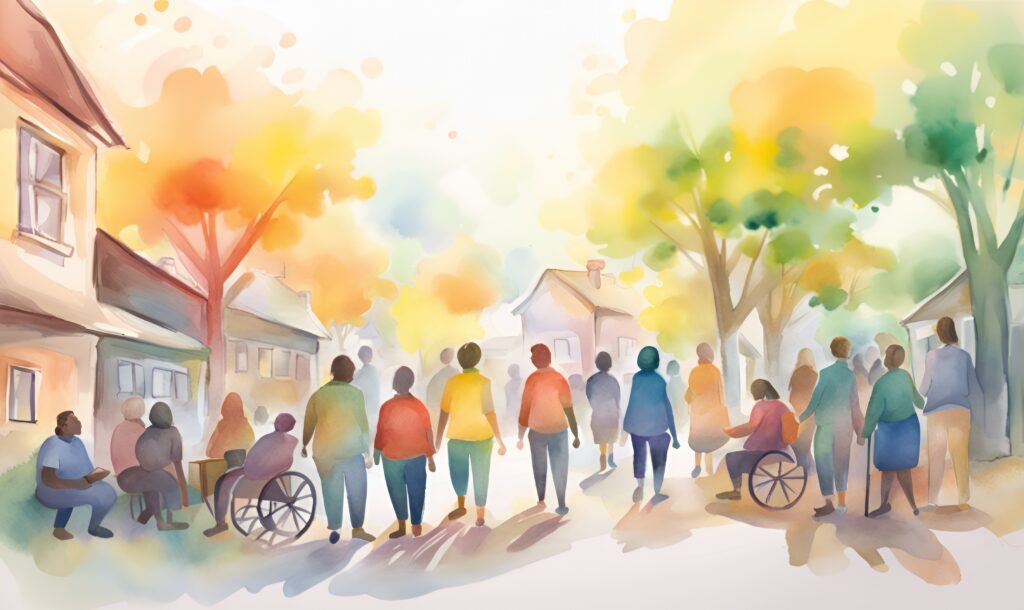Inclusive Growth

By Vojtěch Dvořák (email).
The 2023 RSA Annual Conference took place from 14th to 17th June 2023 in the beautiful city of Ljubljana with the theme Transforming Regions: Policy and Planning for People and Places. The conference brought together over 700 experts from universities, research institutes, government, public and private sectors, with many more joining online.
I started my doctoral studies at the Prague University of Economics and Business at the beginning of this year. My research focuses on the human factor and its role in regional development. I am also interested in innovation, what makes one country or region more innovative than another, and the successful diffusion of development incentives in local communities. At the conference, I had the opportunity to present my work entitled NEETs – A Neglected Group of People in Regional Development, under the auspices of IREAS, Institute for Structural Policy, o.p.s., based in Czechia. I would like to share with you my experience of the conference, which was the first of its kind for me. I have very positive memories. I appreciated the wide range of topics presented and the huge potential for networking that was omnipresent throughout the event.
The theme of my report is inclusive growth. All over the world, people are talking about the development of economies, societies, regions or companies. Developed countries are struggling to maintain often stagnant levels of economic development, and developing countries are trying to catch up. Development has been the subject of many studies, and experts’ views on its role in prosperity generally agree on its significant importance. However, when discussing development, it is important to recognise that its role can vary. In one scenario, it may be a socially beneficial development that seeks compromise in public debate. In another scenario, it may be a ruthless development effort that does not consider the views of all stakeholders and often fails.
The conference featured two sessions on Transforming Places: Investment and Inclusive Development. In these sessions, speakers looked at inclusive development from different perspectives. For example, in addition to local development investment in the form of innovation hubs, they explored the role of gender. They presented new projects that aim to make local development more inclusive.
Linda Maiwald from the Leibniz Institute of Ecological Urban and Regional Development (IÖR Dresden) presented her project review Approaching the Realm of Transition Processes in Peripheral Regions – First Insights from Project TRUST in Görlitz (Germany). Louise Kempton, Associate Dean of Research and Innovation at Newcastle University, presented her work on defining inclusive innovation in a meaningful way for urban and regional policy landscapes, developing and offering suggestions for policy development and future research (How can innovation be more inclusive? The case of the Newcastle Helix in the North East of England).
Grete Gansauer, a PhD student at Montana State University, presented her paper entitled Building (the ‘Left Behind’) Back Better: Assessing Place-based Policy Approaches to Rural Economic Development in US Federal Policy, in which she took an interesting approach to public policy and assessed its impact on inclusion. Neil Lee, Professor of Economic Geography at the London School of Economics, presented his view of the fuzzy development strategy used in the city of Preston (Does the Preston Model Work? An Evaluation of a Fuzzy Economic Development Strategy), where he conducted a counterfactual evaluation of the Preston model based on a synthetic control method and testing for a range of economic outcomes. Finally, Emelie Hane-Weijman, Assistant Professor at Umeå University, Geography and Economic History, presented her gender-focused work entitled Gendered (post-redundancy) Labour Market Trajectories of Token Women and Men, where she explored the differences between women’s and men’s outcomes after redundancy. All the papers presented were very stimulating, and the discussion often led to more interesting ideas and ways of looking at the issues.
Many thanks to the Regional Studies Association for supporting my participation in the conference. I look forward to the next one.
Conference photos, plenary recordings and a short conference video of the 2023 Annual Conference in Ljubljana are available at 2023 RSA Annual Conference.
The next RSA Annual Conference #RSA24 will be held 11th -14th June 2024 at the University of Florence, Italy. For more details, please go to 2024 RSA Annual Conference.
We hope you can join us in Florence for the #RSA24.
Author
Vojtěch Dvořák is a doctoral student at the Prague University of Economics and Business, Czechia.